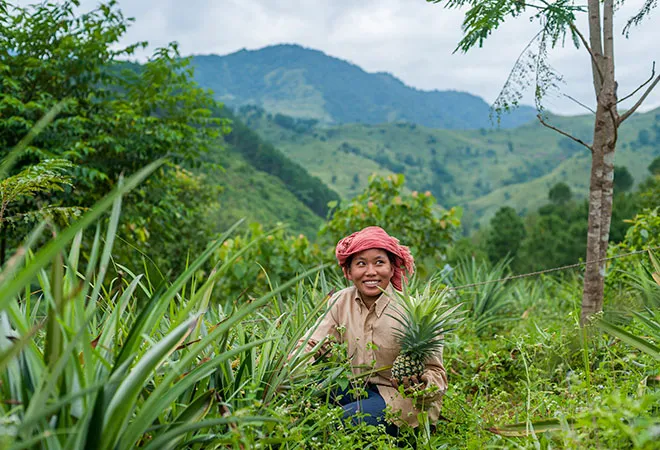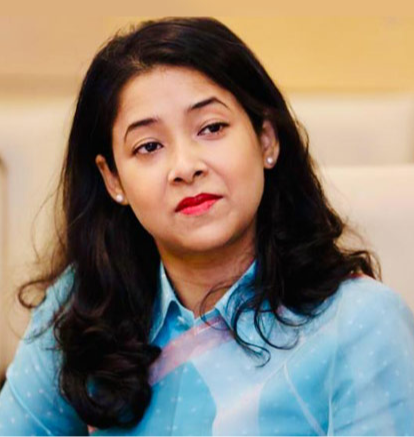
From changing demands, to technologies and competitions, the world is facing various disruptions that could have a transformative impact to people’s daily lives. Three aspects underpinning the globalised world that we live in — markets, movement of skills, and supply chain — are all severely under threat today. An increasing sense of populism and nationalism, as reflected in policies, along with notions of culture are propagating threats and leading to major disruptions.
Disruptions, however, are invoking a sense of hope and fear alike on whether they are going to aid development in becoming more equitable, progressive and sustainable or thwart the achievements the world has made so far.
Will the growing sense of unilateralism create opportunities to reshape the global order in a way where more diverse opinions are allowed to be part of the development conversation? Or will it imply that the limited diversity in the world that we have come to accept so far would be thrown out and instead held accountable by populists?
One of the major aspects of disruptions today is trade barriers challenging the rule-based trading systems. Trade barriers have been detrimental to local economies that are left unable to create additional jobs and opportunities for sustainable growth. One example is the targeted solar panel tariff hike of the Chinese products implemented by the US in 2012 with the rhetoric of protecting the local US industries from Chinese imports. However, the protectionist move has only benefitted few large producers who make up the industry in the US. Since the manufacturers of solar panels are becoming highly atomised in the US, this has not led to any significant job creation, either. Moreover, the move has impacted the installation industry and affected investments in future start-ups. Based on a job census in the US in 2018, 61 percent of solar projects who were polled said they were anticipating installations to drop by more than 25 percent, with a majority expecting higher business costs and more difficulties securing financing due to the tariff hike. This has also impacted economies at a household level, as an increase in product rate due to trade barriers would divert financial resources away from development necessities such as investments in quality education and healthcare.
Trade barriers are not only damaging to the countries involved themselves, but disrupt global supply chains, raising prices for consumers worldwide. Such disruptions to supply and distribution chains, which are a key part of world trade, could have a lasting impact, particularly on companies relocating factories or distribution centres. Investment decisions in turn affect employment and tax raises that could be more disruptive than tariffs.
Another major aspect of global disruption is the inability of a large part of the population to comprehend the financial sources. There is a need therefore to create a system and dialogue where people who are marginalised come to the table to talk about financial inclusivity. An inclusive financial ecosystem is essential for a social contract. It surmounts both physical, and more importantly, psychological barriers, and helps achieve sustainable economic growth. In this context, microfinance institutions are aimed at playing a significant role in developing countries in facilitating inclusion, as they are uniquely positioned to reach out to the rural poor. However, governance and regulatory barriers have led to their failure in several contexts. Thus there is a need to strengthen the underlying power structures and foundations of a society in order to achieve financial inclusion in the first place. Efforts such as land reforms would give women more control over land, and subsequently empower them to make systems more inclusive and equal. The challenges that lies ahead of development efforts at the time of various disruptions are how to engage in countries that have decades of inequities? How to contribute to changes that do not lead to capital flights and migrations? And most importantly, how do we define “inclusive narratives”?
In terms of offering development solutions amid disruptions, educational institutions such as universities have the potential to level the playing field where there are rising disparities and income gaps between the rich and the poor, and to build on the notion of economic prosperity through inclusivity.
Two critical communities, a growing youth population and an increasingly displaced population, are faced with employment gaps and lack of opportunities across the world today. Universities could play a key role in including the youth as well as marginalised groups and providing them with necessary employment skills. Through creation of knowledge bases such as research and data, empowering women and providing gender equity in higher education, and innovation to address critical challenges, educational institutions could be at the forefront of leading development amid disruptions.
Besides the role of education institutions, storytelling for community building could play a key role in creating a vocabulary for conversations on biases without offending cultures. Amplifying the voices of the marginalised in public policy debates and public advocacy, as well as getting them to frame the issues could lead to significant changes.
The views expressed above belong to the author(s). ORF research and analyses now available on Telegram! Click here to access our curated content — blogs, longforms and interviews.




 PREV
PREV


